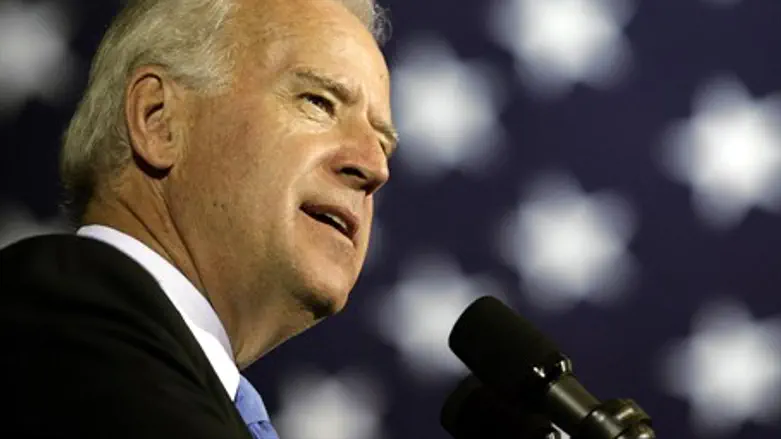
US Vice President Joe Biden on Monday sought to end an embarrassing rift between Washington and Baghdad after Pentagon boss Ashton Carter blamed Iraqi forces for the fall of Ramadi.
The White House said Biden called Iraqi's prime minister Haider al-Abadi, just hours after the US Defense Secretary's suggested the Islamic State group won control of the city because "Iraqi forces showed no will to fight," according to AFP.
Biden "recognized the enormous sacrifice and bravery of Iraqi forces over the past eighteen months in Ramadi and elsewhere," the White House said.
As well as rowing back Carter's comments, Biden called to "reaffirm US support for the Iraqi government's fight against" Islamic State jihadists.
Carter's comments were seen as undercutting a US-Iraqi collective front in the fight against the terrorists.
They were also seen as humiliating for Iraq's Prime Minister, as he desperately tries to hold his country together with a thinly stretched army and assorted ethnic and sectarian militias whose loyalties lie outside Baghdad.
Abadi himself expressed surprise at Carter's remarks and suggested the head of the Pentagon "was fed with the wrong information."
Iraqi troops had held out in Ramadi for more than a year before succumbing to the highly-motivated highly-armed force a week ago.
Iranian hardliners were quick to seize on Carter's remarks, as they continued to to build influence with Iraq's Shiite majority.
"How can you be in that country under the pretext of protecting the Iraqis and do nothing? This is no more than being an accomplice in a plot," said Qassem Suleimani, the Revolutionary Guards' commander of foreign operations.
It was not immediately clear what repercussions there may be for Carter, who took office in February.
The nuclear expert caused angst in the White House even before being formally sworn in, by publicly supporting the US supply of weapons to Ukraine, a position the White House has been reluctant to embrace.
At that time the White House pointedly noted that any decision would be for Obama, not the secretary of defense, to make.
